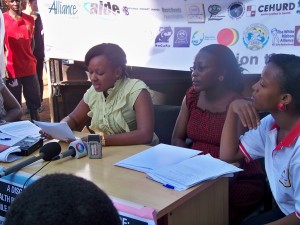The celebration of World Intellectual Property day to day, provides us with an opportunity to reflect on the importance of intellectual property (IP) in the lives of ordinary Ugandans. Indeed flexible intellectual property laws and policies have increasingly become relevant in today’s discussions on access to essential commodities which are critical in an economy such as ours.
As this year’s theme [Creativity: The Next Generation] suggests, we need to highlight the importance of intellectual property policy, legal and institutional frameworks in ensuring an environment for creativity while at the same time addressing the potential of intellectual property to enhance the quality of the daily lives of the people of Uganda today and the generations to come.
The World Intellectual property day also offers us a chance to reflect on the opportunities provided by Articles 7 and 8 of the World Trade Organization’s Trade Related Aspects of Intellectual Property (TRIPS) Agreement. Article 7 of this Agreement provides that the protection and enforcement of intellectual property rights SHOULD contribute to the promotion of technological innovation and to the transfer and dissemination of technology in a manner conducive to social and economic welfare. On the other hand, Article 8 gives the countries liberty to adopt measures necessary to protect public health and nutrition, and to promote the public interest in sectors of vital importance to their socio-economic and technological development while formulating or amending their laws and regulations. This position was also re-affirmed in the 2001 Declaration at Doha that “the TRIPS Agreement DOES NOT and SHOULD NOT prevent Members from taking measures to protect public health.”
See full statement here


